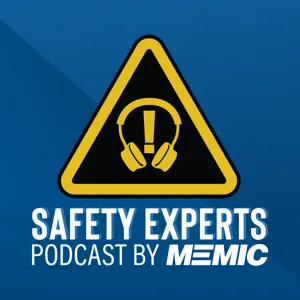Podcast Summary
Unions see resurgence in popularity: Unions offer better compensation and job security but face resource disparities against corporations
Unions are experiencing a resurgence in popularity, with more workers filing for union representation and approval ratings at their highest point in decades. According to the National Labor Relations Board, there was a nearly 60% increase in union representation petitions between October 2021 and March 2022, compared to the same period the previous year. The Economic Policy Institute reports that workers with a union contract earn around 10% more than nonunion workers with similar jobs. However, union membership has been on a steady decline, hitting its lowest point since the Great Depression in 2020, with only 10.3% of private sector workers being union members. Unions spent approximately $48 million on lobbying in 2021, while Apple, Amazon, Google, and Facebook spent more than that. Despite these statistics, I have mixed feelings about unions. On one hand, they can provide workers with better compensation and job security. On the other hand, they are often outmatched by large corporations in terms of resources and lobbying power. Companies should respond to this resurgent labor movement by focusing on building a strong employment value proposition, ensuring fair compensation, and fostering a positive work environment to retain employees. Ultimately, the success of unions depends on the specific circumstances of each industry and company.
Unions and income inequality: Unless we invest in education, minimum wage, and healthcare, the middle class will continue to struggle due to income inequality and the decline of unions. Renewed focus and investment in unions can help create a more equitable society.
Unions play a crucial role in ensuring a thriving middle class by advocating for fair wages and workers' rights. However, the decline of unions and stagnant minimum wages have contributed to growing income inequality. The speaker argues that unless we make intentional investments, or "redistribution," from the top decile of income earners to education, minimum wage, and healthcare, the middle class will continue to struggle. The speaker also emphasizes that income inequality is closely linked to the weakness of unions and the suppression of minimum wage. Corporations view unions as their enemy due to their disorganization and infighting, but the speaker believes that with renewed focus and investment, unions can once again be champions for working people and help to create a more equitable society.
New approach to unions with government support and worker representation on boards: Consider the long-term impact of job opportunities beyond just salary and trend, weighing growth, personal fulfillment, and financial security.
While unions have had their challenges, a new approach with government support and worker representation on boards could help address income inequality. For individuals looking to advance financially while staying true to themselves, it's essential to consider the long-term impact of job opportunities beyond just salary and trend. Ramon, your situation is common, and while making $100k may seem inadequate in high-cost areas, it's essential to weigh the pros and cons of each opportunity, considering growth, personal fulfillment, and financial security.
Prioritizing Economic Security: Consider financial stability for self and family, make sacrifices if needed, and evaluate work-life balance for economic security.
Individuals should prioritize economic security for themselves and their families, recognizing that this may involve making sacrifices and considering different living locations. The speaker acknowledges the allure of pursuing passions and being true to oneself, but emphasizes the importance of financial stability in today's society. The discussion also touches upon the idea that some people may choose to prioritize work over other aspects of life in order to achieve economic security at a younger age. Additionally, the speaker expresses criticism towards senior management at companies like Meta, particularly in relation to their role in contributing to societal issues like teen depression, while still acknowledging the importance of employees making a good living. Overall, the conversation encourages a thoughtful and honest evaluation of one's financial goals and the potential sacrifices required to reach them.
Explore Multiple Job Offers: Consider multiple job offers to determine the best career path, leveraging competition in the job market and exploring emerging industries.
Individuals should explore multiple job offers before making a decision, allowing the market to help guide them towards the best opportunity. The speaker acknowledges the complexities and ethical dilemmas surrounding companies like Meta, but ultimately encourages people to focus on their own career growth. He emphasizes that it's essential to have options and leverage the power of competition in the job market. Additionally, the speaker encourages people to consider the potential of emerging companies and industries, such as Amazon Media Group, in their job search. In summary, the key takeaway is to prioritize exploring multiple job offers and letting the market help determine the best career path.
Maximize financial rewards with smart decisions and the right tools: Smart financial decisions and effective communication skills can lead to significant rewards in the future. Use tools like NerdWallet to compare credit cards and find deals, and learn to communicate effectively to engage and educate audiences.
Making small, smart financial decisions today can lead to significant rewards in the future. This can be achieved through the use of tools like NerdWallet, which helps users compare top travel credit cards to maximize their spending and find the best deals. Additionally, effective communication skills are crucial in holding an audience's attention and conveying knowledge in an engaging way. Speaker Prafjeet Chopra, who is known for his engaging presentation style, emphasized the importance of communication in supporting himself and his family, and shared that he learned this skill early on. He also highlighted that some of his ability to communicate effectively may be genetic, as his father was a great presenter despite facing challenging circumstances in his own life. Overall, the key takeaways are the importance of making smart financial decisions and effectively communicating information to engage and educate audiences.
From Personal Influences to Engaging Presentations: Understand audience, use visuals, storytelling, practice, and invest time to connect and engage with the audience.
Effective communication and engaging content require a combination of natural talent, hard work, and an understanding of the audience. The speaker in this discussion shares how they were influenced by their father's charm and fascination with management concepts, but also struggled with a sense of selfishness. They honed their skills through teaching and learned the importance of visuals, storytelling, and practice. They also emphasized the importance of understanding the audience and incorporating emotions and personal experiences into their presentations. Ultimately, they found that investing time and effort into preparing for presentations, and finding ways to connect with the audience, can help anyone become an engaging speaker.
The Importance of Authenticity and Vulnerability in Storytelling: Speakers resonate with audiences when they share personal experiences and flaws. Authenticity and vulnerability foster genuine connections.
Learning from this episode of the PropG Pod is the importance of authenticity and vulnerability in storytelling. The speakers at conferences often resonate with audiences when they share personal experiences and flaws. Colin from Madison asked a question that touched on this theme, and the speakers acknowledged the desire for genuine connections. If you'd like to submit a question for future episodes, please record a voice message on officehours.propgmedia.com. The PropG Pod is produced by Caroline Shagran and Drew Burrows, with associate production by Claire Miller. Thank you for listening, and we'll catch you on Thursday with more insights from the Vox Media Podcast Network.






